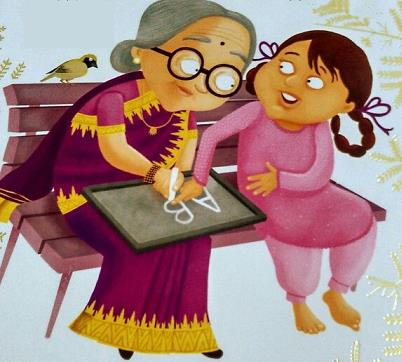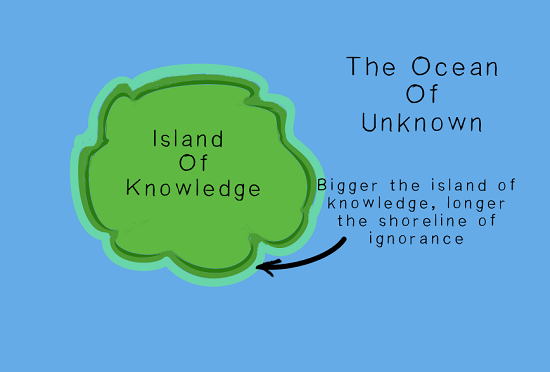This is the second part of the series of lessons I have learned from my reading of Sudha Murthy’s books over the years. Read the first part here – Success is No Accident.
The story I want to share today is set up in Sudha Murthy’s (Sudha) village, during her early childhood. This is about how she taught her 62-year old grandmother to read the Kannada language, and the lesson it contains for all of us.

Sudha’s grandmother was fond of a weekly magazine titled Karmaveera. This book carried a series of stories titled Kashi Yatre written by the famous Kannada author Triveni.
Her grandmother, while not being able to read the stories herself, loved them as Sudha used to narrate the same to her.
Once when Sudha returned from a week-long wedding, she found her grandmother in tears. She had never seen her cry even at the toughest of times, so she was surprised to see her that way. When Sudha asked her what the matter was, her grandmother narrated the story of her life.
She explained that while Sudha was away, the magazine came in as usual. But she could not read a single alphabet and felt very helpless. She then told her that the reason she never learned to read was because she had never attended a school. She had lost her mother at an early age and her father was too busy to guide or support her. Also, in those days, not many girls were encouraged to attend school and get educated. Later, she got married and got busy with her life, children and then grandchildren. It was then that she had decided to get the young ones in her family, including the girls, educated well.
Anyways, after Sudha consoled her, the grandmother made her a promise.
The promise was that she would learn to read Kannada from the next day onward and keep the day of Saraswati Puja as the deadline. Sudha, being a child, laughed at her grandmother’s decision. Her grandmother gently smiled and said that there is no age bar for learning. By the day of Saraswati Puja, she would certainly be able to read a novel by herself.
Sudha was a good teacher at that tender age too and helped her grandmother in learning the language properly. And by Saraswati Puja, her grandmother was able to read the novel all by herself.
After reading the novel, her grandmother did something very unusual. She touched Sudha’s feet as a sign of respect. Sudha was taken aback. In India, only youngsters are expected to touch their elders’ feet. But here her grandmother touched her granddaughter’s feet as a mark of respect. She was grateful to her granddaughter for teaching her so well and helping her get over her inability of reading Kannada.
We observe here that a person of 60+ years can be so disciplined and keep aside her ego and learn from a young child. If the grandmother would have let her ego interfere with her need to learn, and that too from such a young girl, she would never have been able to learn to read by herself.
My father tells me about this quote from our Vedas that goes like this –
आ नो भद्राः क्रतवो यन्तु विश्वतः
Translation: Let noble thoughts come to us from all sides
What this means is that we should be willing to learn from everything and everyone. This is because there are so many things we do not know about. And thus, it is important for us to learn as much as possible.
See this illustration to understand the importance of learning –

Image Source: Safal Niveshak
As this illustration shows, assume you are standing on the island of knowledge (things you know) and around you is the sea of ignorance (things you do not know).
What happens when the size of the island of knowledge increases? So will the shoreline of ignorance, right?
What this again means is that the more you know, the more there is to know.
The ancient Greek philosopher Aristotle said –
The more you know, the more you know you don’t know.
The only limitation for learning is the lack of curiosity, which is a strong desire to know or learn something. If a person has the will to learn, like Sudha’s grandmother, she can learn anything irrespective of her age and status.
Even the great scientist Albert Einstein credited his intelligence to curiosity. He is quoted as saying –
I am neither especially clever nor especially gifted. I am only very, very curious.
So, friends, stay curious and keep learning. There is no limit to it.
Thank you for reading!
Regards
Kavya
Very good article 👍👌. Thanks for sharing. All the best 👍😊
Like to learn from each of your articles and would continue to do so. Thank you for writing such a nice articles.
God bless you always bachcha. You may surpass your father one day and that day he would be the happiest person on earth.